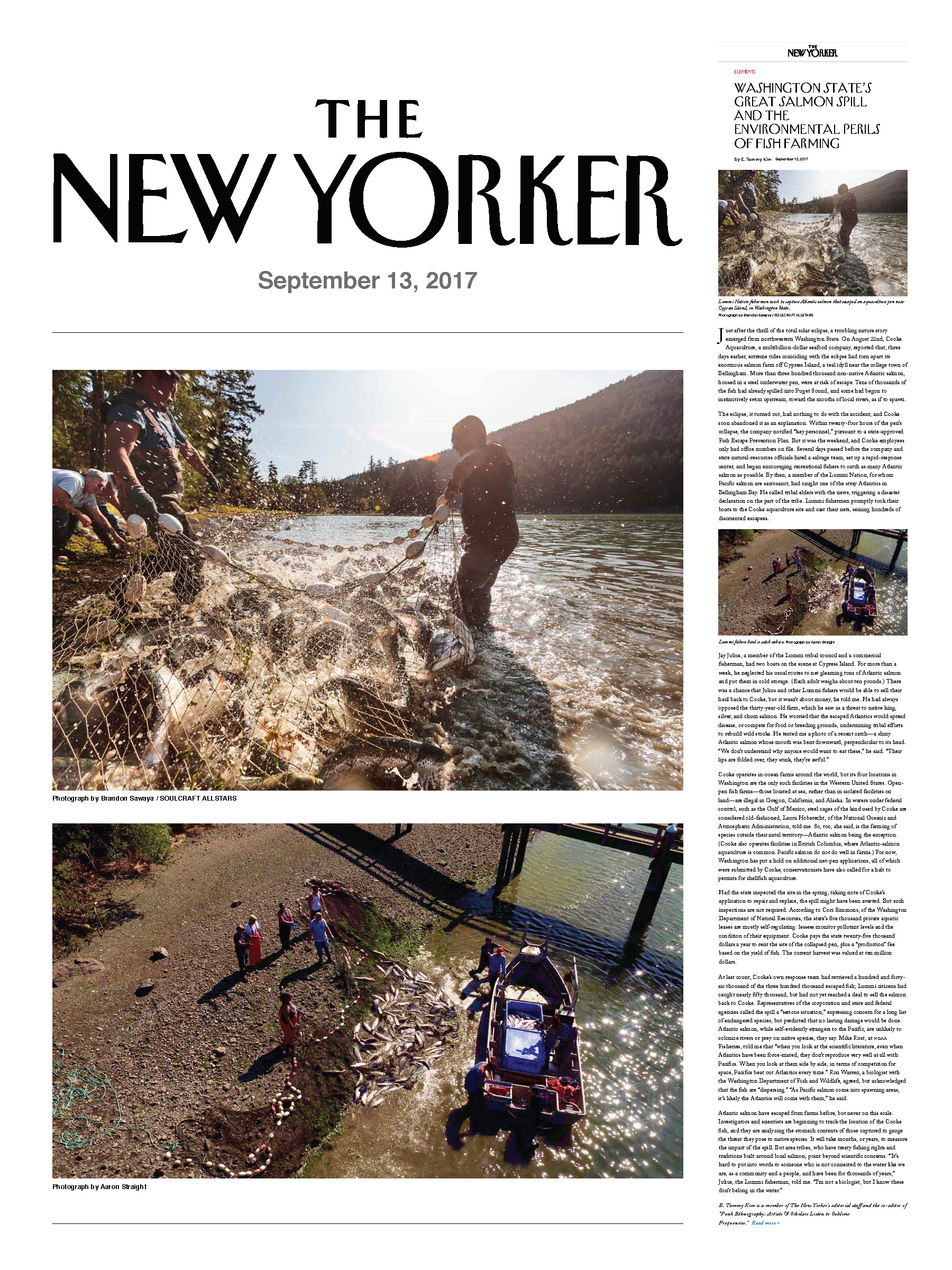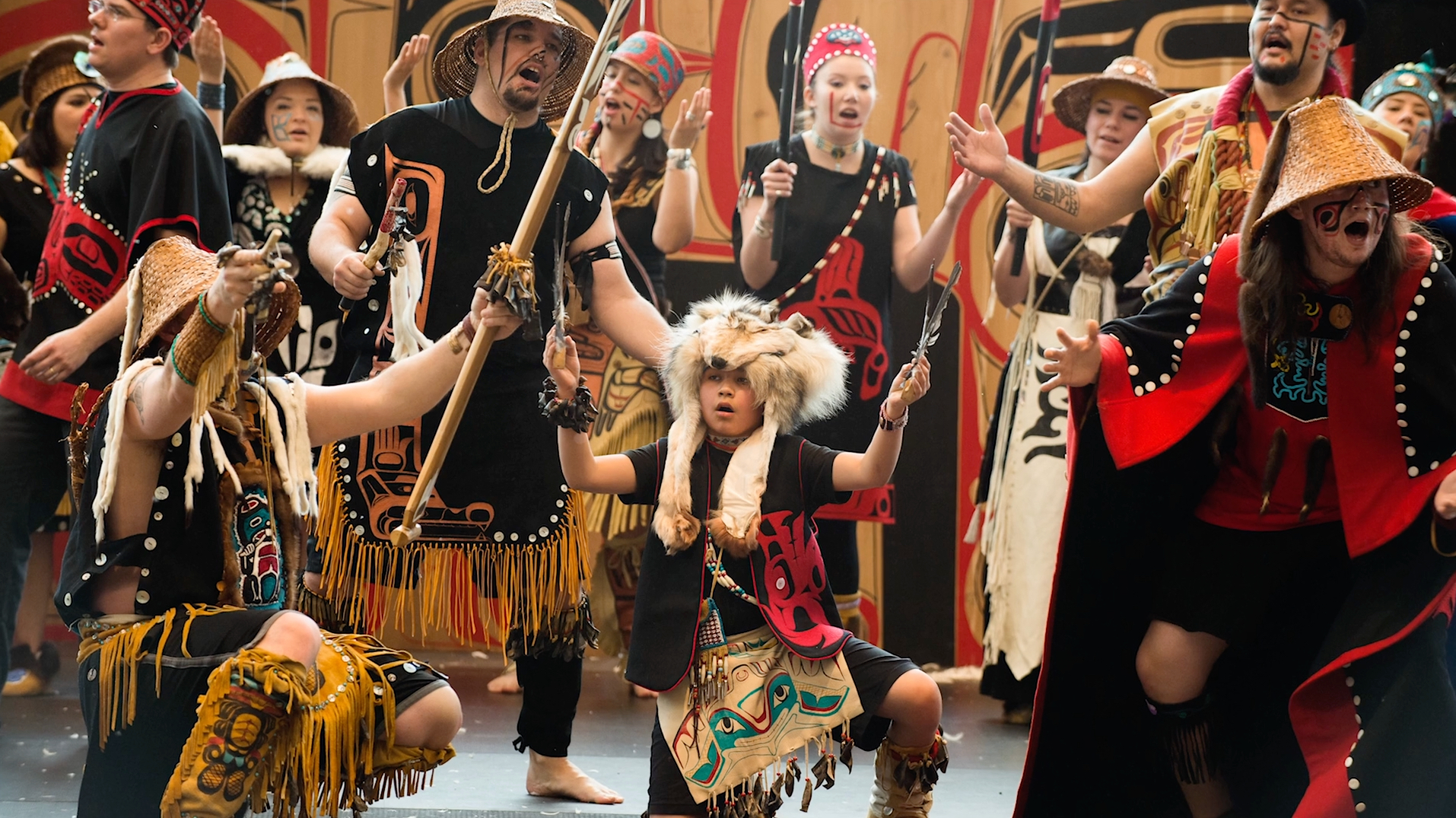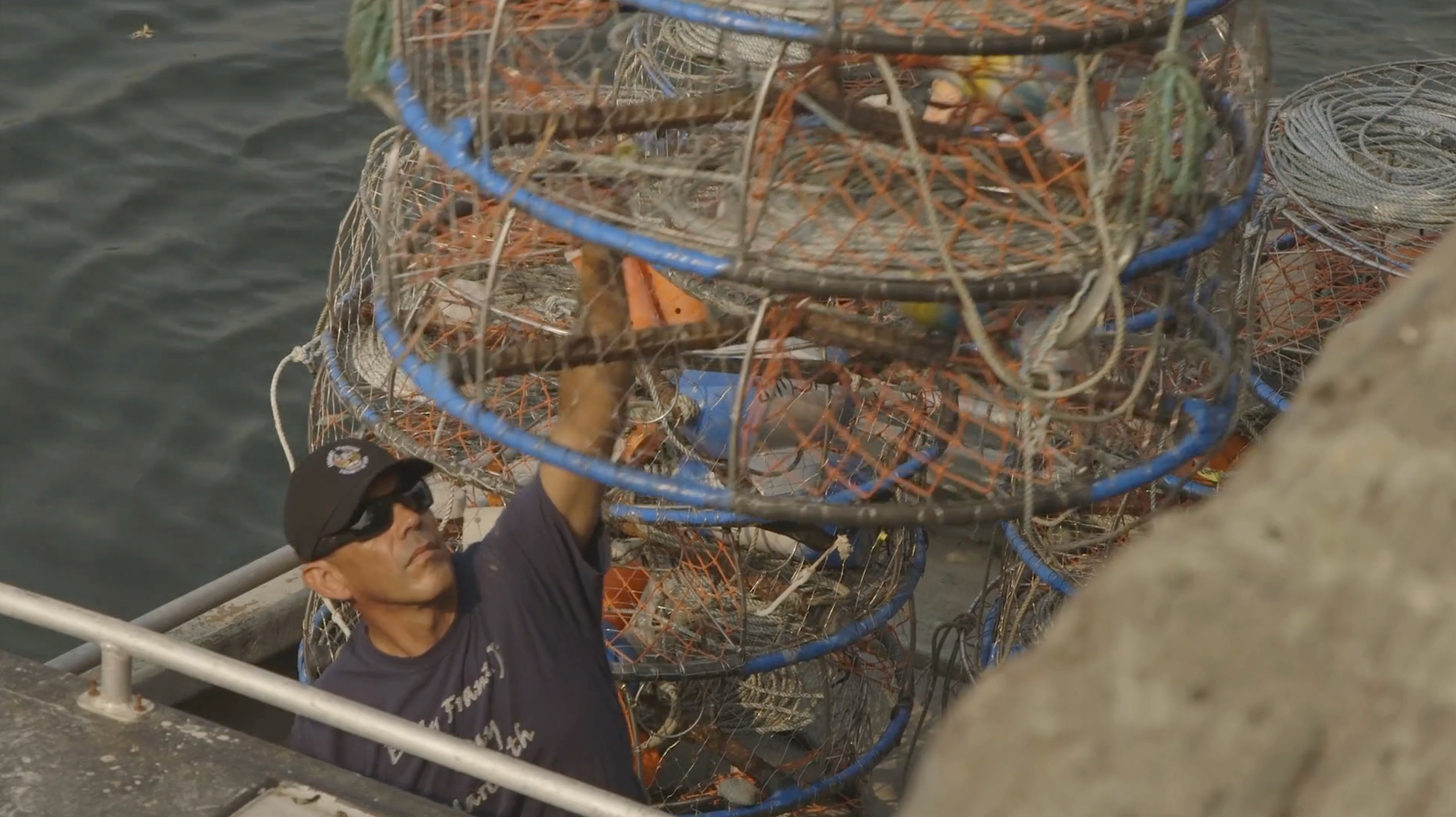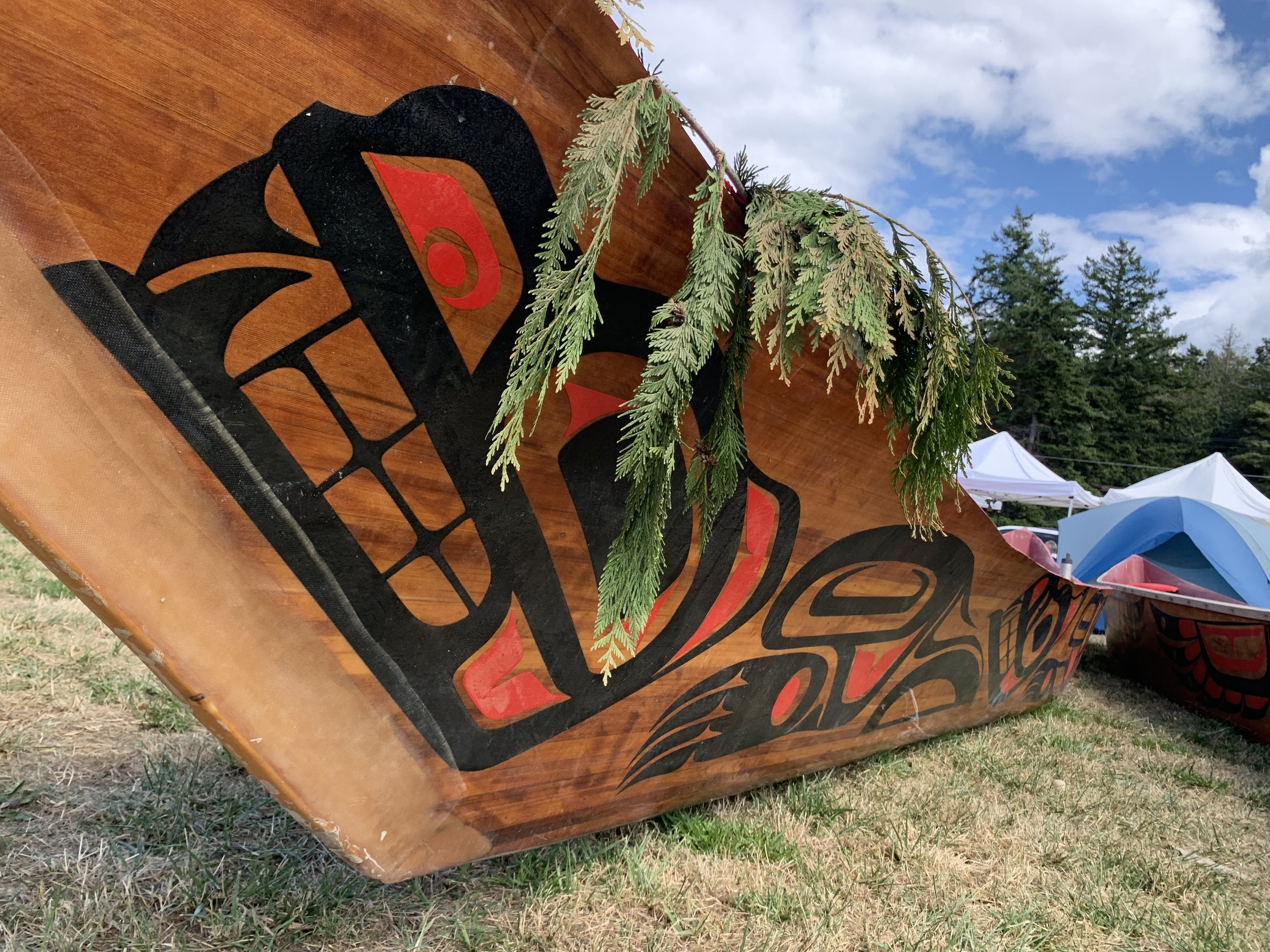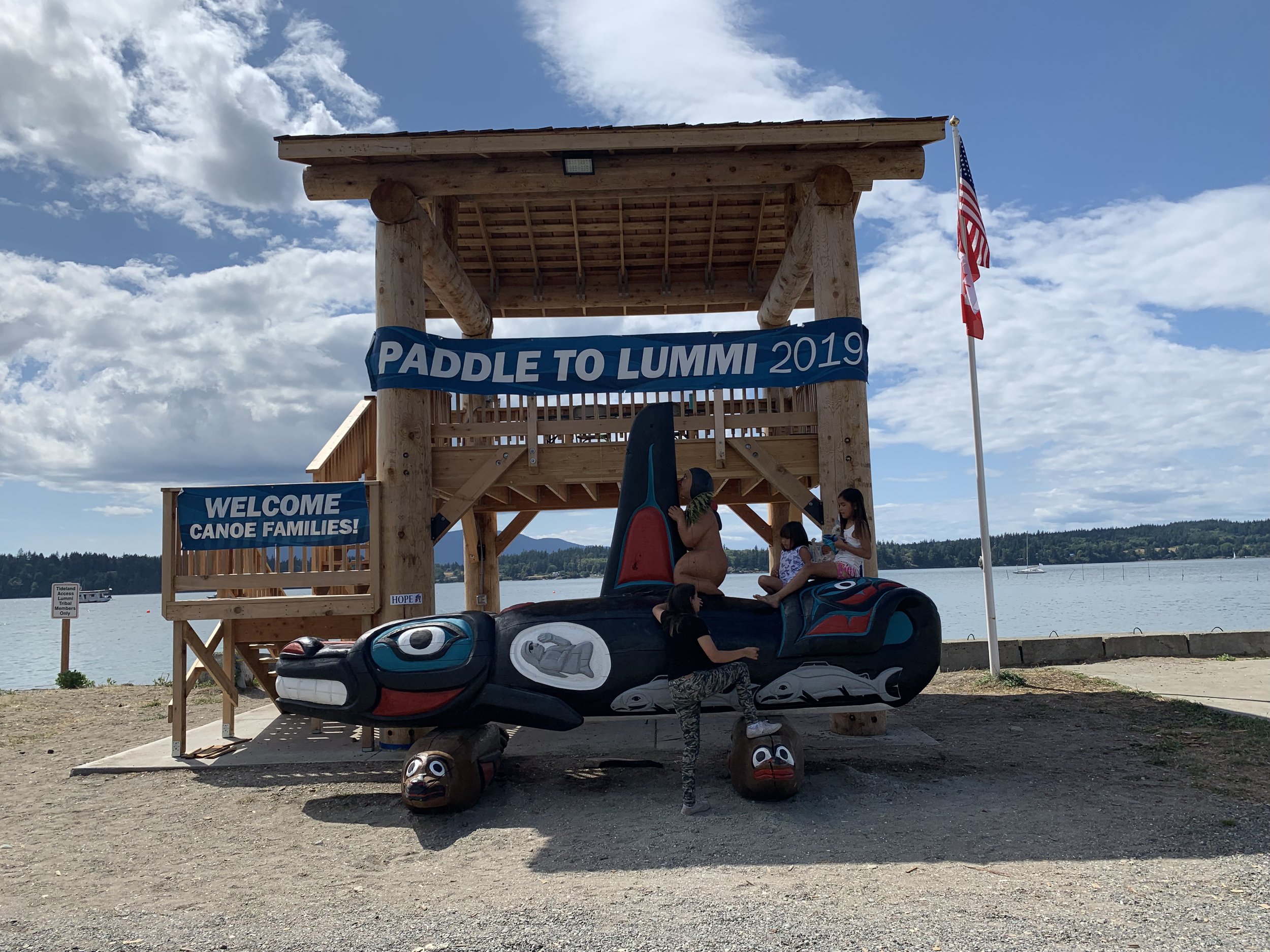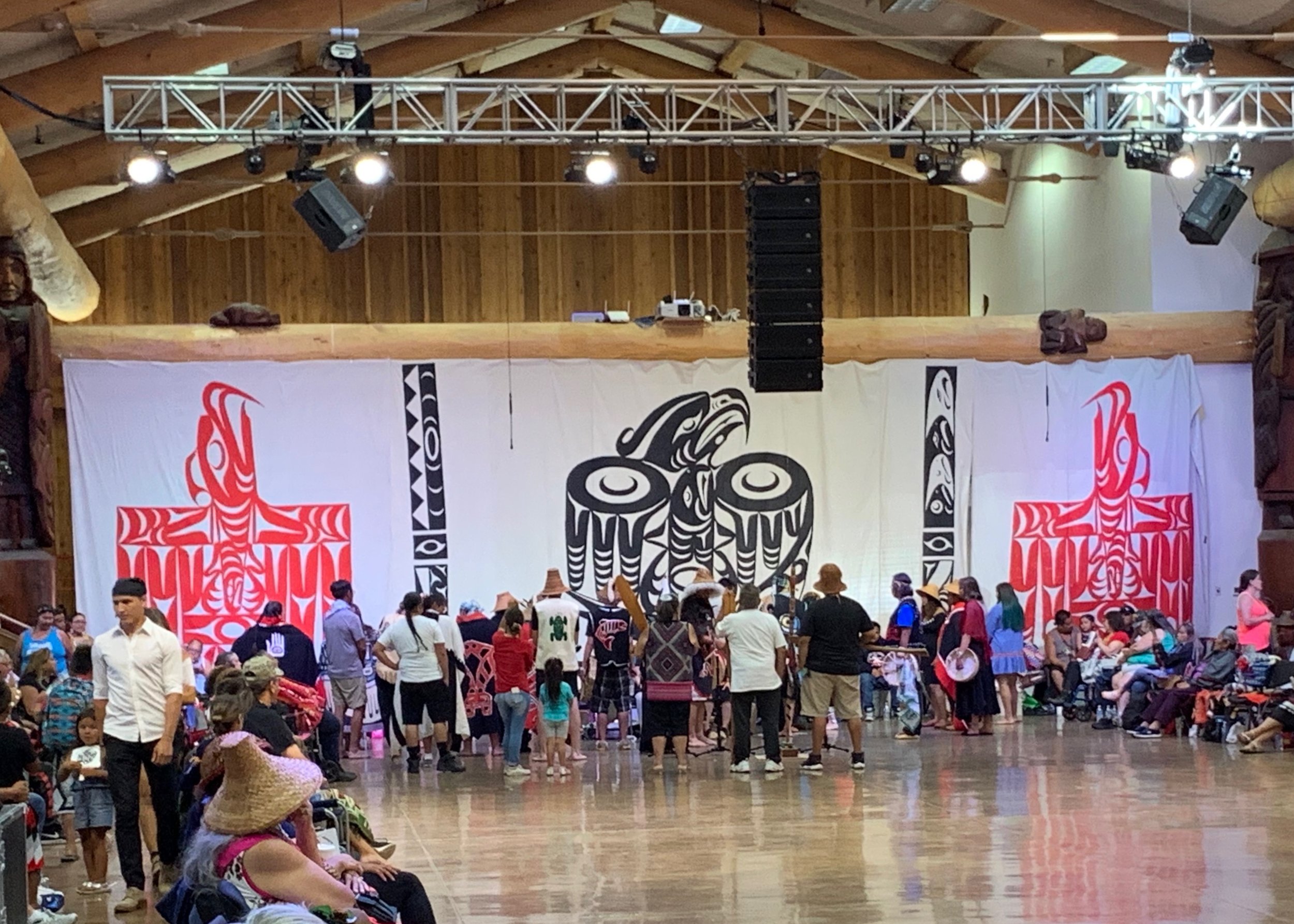Lummi Nation chairman and fisherman, Jay Julius, took us with him to clean up the spilled farmed fish. Photos by Aaron Straight + Brandon Sawaya for Soulcraft Allstars.
Jay Julius, Lummi Nation chairman, speaking out about the proposed Coal Trains. Photo by Paul Anderson.
Lummi Nation protests the proposed Coal Trains. Photo by Paul Anderson
Jay Julius, Lummi Nation chairman and fisherman, crabbing with his son. Photo by Aaron Straight.
One of nearly 100 canoes paddle to Lummi Nation for the the 2019 Paddle to Lummi. Photo by Aaron Straight.
Welcoming more than 100 tribes as well as local community members to celebrate Paddle to Lummi 2019. Photo by Aaron Straight.
Tlingit, Tsimshian, and Haida Native Alaskan Tribes present to the Lummi Nation at Paddle to Lummi 2019. Photo by Aaron Straight.
“Mutants! I won’t even call them fish,” Jay Julius, Lummi Nation chairman and fisherman said on the phone in the middle of our interview. He was furious. Our interview was over. Jay had just gotten word that 300,000 mutant fish had been accidentally spilled into the waters in the San Juan Islands and he was needed to help fish them out. “If you can go now, you can go with me “, Jay said. We frantically packed our film equipment. And just like that we were out of the boardroom and on a boat headed to possibly the largest farmed salmon spill on the West Coast.
The photos we took that day ended up in The New Yorker Magazine’s story about the spill. The footage we shot became a short movie called “Mutants” and helped educate people in the region (including the Mayor of Seattle) about what was happening. All the coverage eventually led to Washington State banning net-pen farming for non-native species beginning in 2022 but not until long after Jay and dozens of Lummi Nation fisherman and woman cleaned up a quarter of million escaped “mutants”.
But this isn’t the first time that the Lummi Nation has saved our region from near environmental disaster. Lummi Nation stopped the Coal Trains.
An estimated 50 million tons of coal was planned to be transported by rail and by ship through the PNW. Cherry Point, Washington was identified as “the last deep water port” and was going to be the export site of cheap coal to China. The ocean liner traffic, estimated at 487 vessels each year, and the endless line up of mile-long coal trains without any mishap would have been devastating to the region. But as history shows, it’s not a matter of if there will be a spill from a train or a ship but when.
One of the most beautiful places on earth would have been severely compromised. And for what? So that the rail road and a few private investors could get very wealthy and China could pump more pollutants into the air.
How did the Lummi Nation do it? They refused millions of dollars in payout money and they bravely put their treaty rights on the line. As Jay Julius said, “Our culture is not for sale, our Treat Rights are not for sale, and the health of our future generations is not for sale. Period.”
Despite massive protests by communities across the PNW, the communities in harm’s way were not able to stop the trains. It was the Lummi Nation who stopped the trains.
That’s two big environmental disasters averted because of the Lummi Nation. But the Lummi do more than just stop these environmental dangers. They also bring people together.
Paddle to Lummi 2019: Over the last 6 days, an estimated 10,000 people have descended on Lummi to celebrate tribes from Hawaii to Alaska paddling nearly 100 canoes thousands of miles to arrive at the Lummi Nation. Over 100 tribes with different languages and cultures have united together. Why is this significant?
Well, in a time when so many Americans are divided these Native Americans / First Nations / Native Alaskans are putting aside their differences to celebrate with their families something bigger than themselves – peacefully and powerfully. And despite great challenges among their people (poverty, homelessness, addiction, trauma… sounds familiar to what we are all dealing with or not dealing with) they are unifying and celebrating.
At Soulcraft Allstars, we have chosen to be a sponsor of the Paddle to Lummi. Why? Because we are impressed by the Lummi Nation. What they are doing is unifying, it is hopeful, and it is beautiful. And we sure could use more of that in our world today.
So, if you feel similarly, why not find a way to invest in the Lummi Nation? We believe this is one great way we can make our community safer, healthier, and stronger for future generations.
Written by Aaron Straight | Creative Director | Soulcraft Allstars
Soulcraft Allstars is a Bellingham / Seattle based filmmaking and storytelling agency. If you are interested in learning more. Say hello: [email protected]

